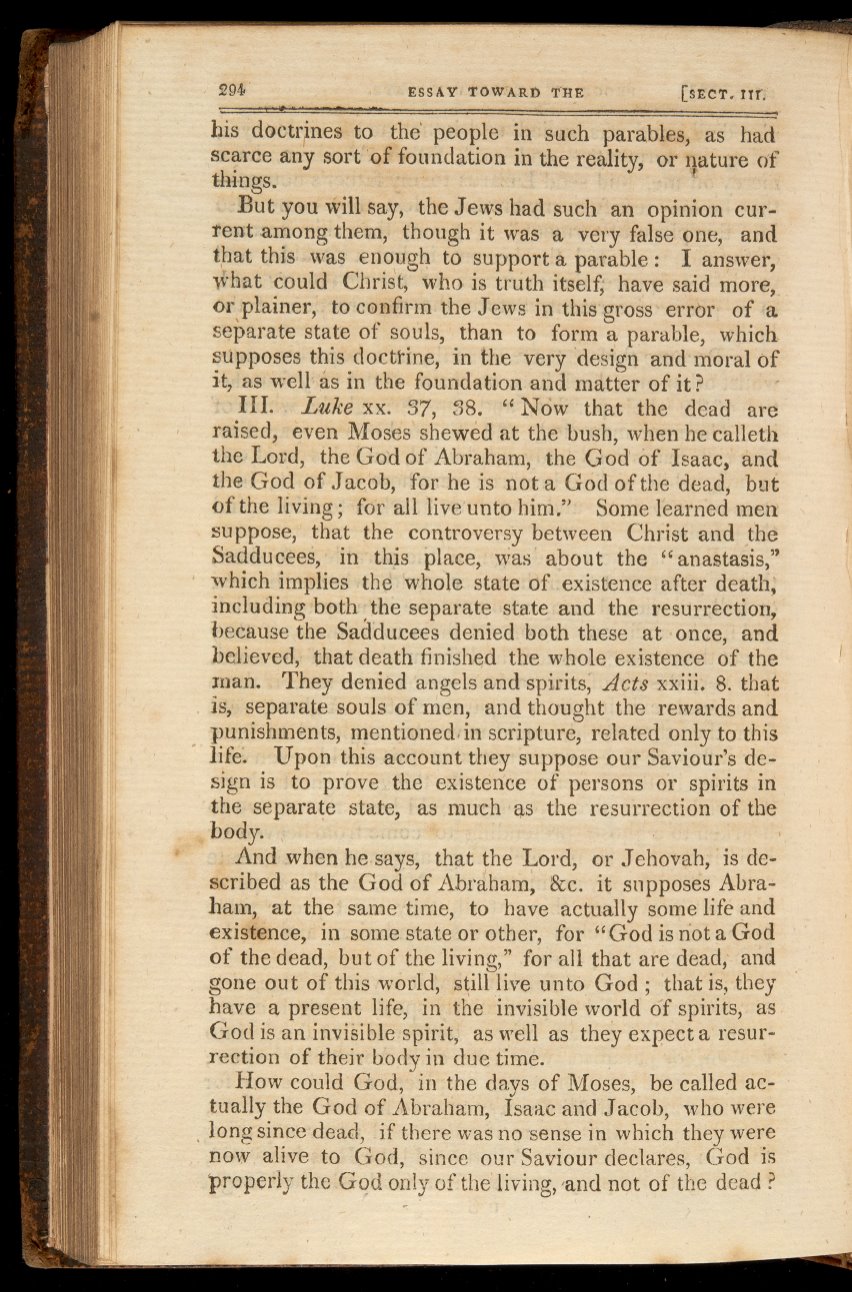

294
ESSAY
TOWARD THE
[SECT.
M.
his
doctrines
to
the
people
in
such parables,
as
had
scarce any
sort
of
foundation
in
the reality,
or nature
of
things.
But
you
will say,
the Jews had
such an
opinion
cur-
rent
among
them,
though
it
was
a
very false
one,
and
that
this
was
enough
to
support a parable
:
I
answer,
What
could Christ, who
is
truth
itself;
have
said
more,
or
plainer,
to
confirm the
Jews
in
this gross
error
of a
separate state of
souls,
than
to form
a parable,
which
supposes
this
doctrine,
in
the
very design
and moral
of
it,
as well
as in
the
foundation and matter
of
it
?
III.
Luke
xx. 37,
38.
"
Now
that
the
dead
are
raised, even
Moses shewed
at
the bush, when
he
calleth
the
Lord, the
God of
Abraham, the
God of Isaac, and
the God
of
Jacob,
for
he
is
not
a
God
of
the dead,
but
of
the
living;
for all
live
unto
him."
Some
learned men
suppose,
that
the controversy between
Christ and
the
Sadducees, in this place,
Was
about
the
"anastasis,"
which
implies
the whole state
of
existence
after death,
including both the separate state and the resurrection,
because the
Sadducees denied both these
at
once,
and
believed,
that
death
finished
the
whole existence
of
the
man.
They
denied
angels
and
spirits,
Acts
xxiii.
8.
that
is,
separate
souls
of
men,
and thought
the rewards
and
punishments, mentioned-
in
scripture,
related
only to this
life.
Upon
this
account
they suppose
our
Saviour's
de-
sign
is
to prove the existence
of
persons
or
spirits in
the separate state,
as
much
as
the
resurrection
of the
body.
And when
he
says,
that
the
Lord,
or
Jehovah,
is
de-
scribed
as
the
God of
Abraham,
&c.
it
supposes Abra-
ham,
at
the
same time, to have
actually
some life
and
existence,
in some
state or other, for
"God
is
not
a
God
of
the dead,
but
of
the
living," for all
that
are
dead, and
gone
out of
this world,
still
live
unto God
;
that
is,
they
have a
present
life,
in
the
invisible world
of
spirits,
as
God
is
an invisible spirit,
as well as
they
expect
a
resur-
rection of their
body
in
due time.
How
could
God,
in
the
days
of
Moses, be called ac-
tually
the
God of
Abraham,
Isaac
and
Jacob,
who were
long
since dead,
if
there
was
no
sense
in
which they were
now alive to
God,
since
our
Saviour declares, God
is
properly
the
God
only
of
the
living,
and not
of
the dead
?

















